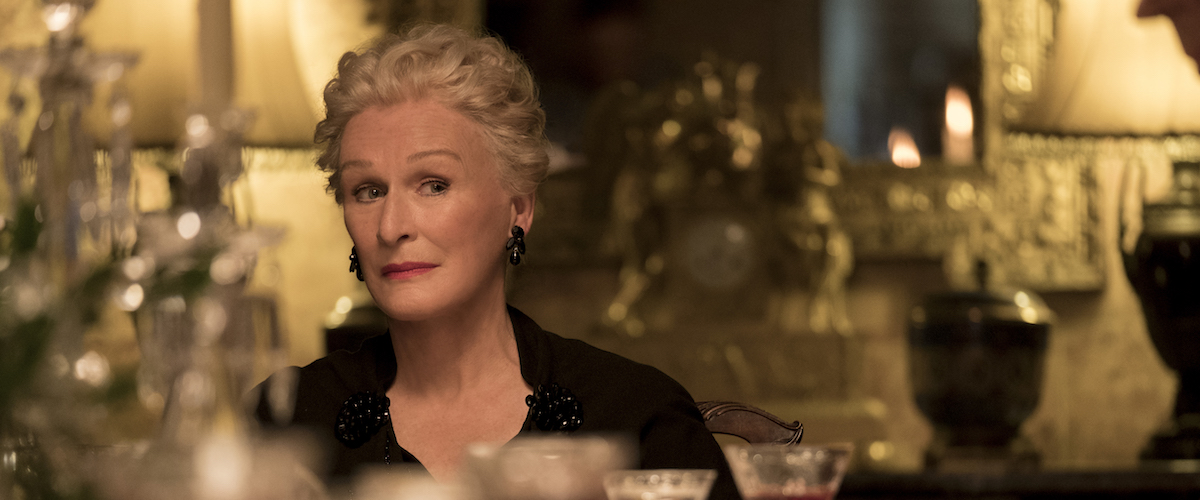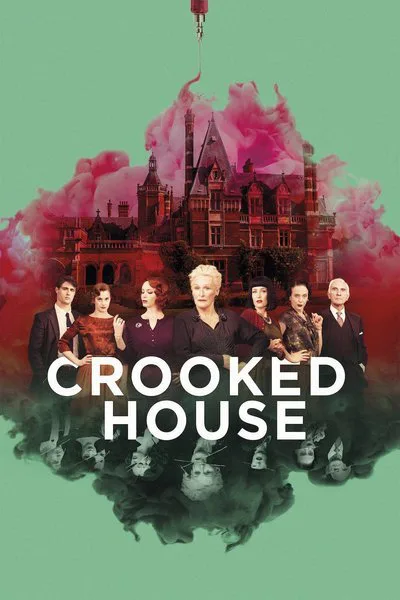Agatha Christie’s massive collection of novels and stories are largely evergreen properties because of their elegant, economical storytelling and their sense of intrigue. It’s no surprise that numerous adaptation of her work continue to be produced; though they flourish most frequently in the UK on radio and television, there are many notable feature film versions produced across the globe, including ones helmed by directors like Billy Wilder, Frank Tashlin, and Sidney Lumet. This year alone, Kenneth Branagh directed and starred in the fourth adaptation of Christie’s “Murder on the Orient Express” to great commercial success.
Yet, there’s another adaptation of a Christie novel that has snuck in under the wire before the end of the year: “Crooked House,” a drawing room mystery set in an enormous estate owned by a brutish, recently deceased patriarch. Unfortunately, director Gilles Paquet-Brenner never bothers to inject a spark of life into his merely competent adaptation, let alone other necessary qualities like suspense or entertainment. It’s a bland exercise in mystery that ostensibly highlights the performances from its randomly assembled cast (Glenn Close! Gillian Anderson! Christina Hendricks! Terrence Stamp?), but the actors never once seem engaged with the material beyond the surface. Thus, “Crooked House” feels as lifeless as the corpse at its center.
The plot hews quite closely to the source material: Private detective Charles Hayward (Max Irons, utterly devoid of charm or personality) has been hired by Sophia de Haviland (Stefanie Martini) to solve the possible murder of her tycoon grandfather. Hayward takes on the case because of his past love affair with Haviland, but he quickly learns that he signed up for more than he bargained for when it becomes obvious that every member of the sprawling Leonides family is a suspect in the patriarch’s death. He slowly interrogates them all and finds that jealousy, bitterness, and greed have infected the whole clan, leading Hayward no closer to the truth. Soon, secrets emerge, and twists arise, eventually leading to an explosive climax involving the least likely suspects.
Paquet-Brenner and his two co-writers (including “Gosford Park” screenwriter Julian Fellowes) handle the whodunit reveal at the end fairly well, despite its haphazard staging, but it’s an interminable journey to reach that end point. It’s utterly baffling that the film spends so much time teeing up Hayward’s backstory only to effectively render it irrelevant in the face of the central mystery (I assume this works better on the page). It’s a more understandable decision to foreground the romance between Hayward and Haviland, given that it’s the story’s catalyst and it presents a potential conflict of interest between investigator and suspect, but Irons and Martini have almost no chemistry to speak of and the film conveniently forgets their relationship for long stretches. Contrived tensions between Hayward and Scotland Yard are similarly peppered in for little reason at all.
Other irritating elements pervade “Crooked House,” such as sloppy editing and an obnoxious score, but the film’s greatest sin is that the actual mystery never gains urgency or weight. It’s difficult to assign singular blame for such an issue—it’s possible that the script let the actors down or vice versa, or the direction failed to amplify the writing and the performances—but there’s nevertheless a void at the film’s center that cannot be ignored. Actors like Close and Anderson clearly relish playing their respective characters because they’re just generic enough to allow for unique interpretations, and yet the emotions on display never transcend their broad outlines. Paquet-Brenner disperses new information at a reasonable clip, but no piece of evidence feels even marginally significant, even as misdirection. It all feels muddled in translation by people who clearly have reverence for Christie’s talents but don’t quite understand what makes her work sing.
There are brief glimmers of flair and technique scattered throughout the film, such as an impressive performance by the young Honor Kneafsey as the mischievous Josephine and a well-blocked dinner scene that allows for amusing familial sniping. Yet, “Crooked House” is a bored and boring adaptation of a Christie tale that demands a stronger hand and a taste for mirth amidst the morbidity. Instead, we have another middling entry in the Christie film canon. Maybe someone else will take another stab at it in the near future.




















